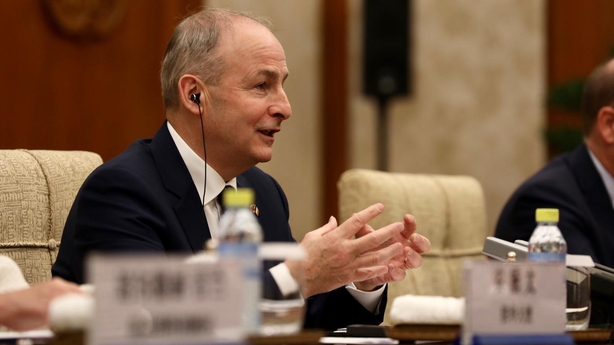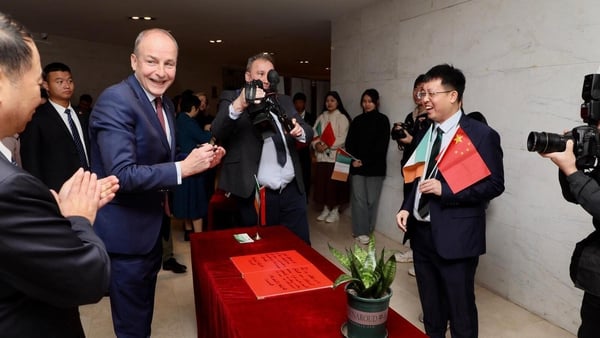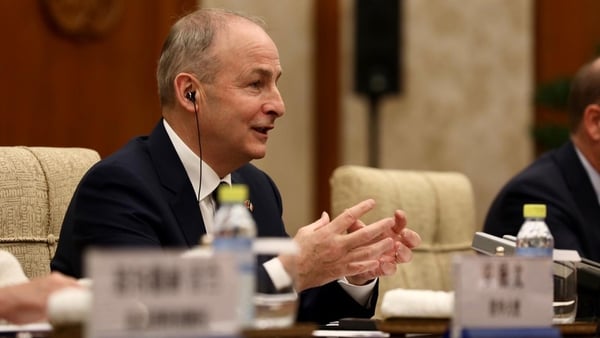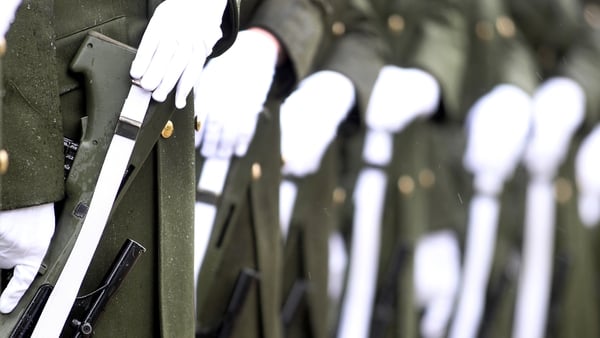Ireland is anxious to "maintain and strengthen" its economic relationship with China, Tánaiste Micheál Martin has told the Chinese foreign minister in Beijing.
In his opening remarks ahead of a meeting with Wang Yi, Mr Martin emphasised the nature of Ireland's small and open economy, noting that Ireland was promoting free trade in the EU.
"Within the European Union, we are very clear in terms of advancing the concept of open and free trade," Mr Martin told Mr Wang, calling it "essential".
His comments come amid increased trade tensions between the EU and China, particularly in the wake of European Commission President Ursula von der Leyen's decision to launch an investigation into Chinese government subsidies of electric cars.
While Chinese electric vehicles represent only a small fraction of those sold in the bloc, the EU believes that Chinese automakers are benefitting from state supports and flooding the EU's market.
The EU has decided to "de-risk" the trade relationship, hoping to become less reliant on China while still continuing to trade.
Following the Covid-19 pandemic, the EU concluded that it was overdependent on Chinese supply chains.
For its part, China said the EU was simply becoming more protectionist, or trade-averse, and has warned that recent EU actions would have a negative impact on relations.
In May, Mr Martin said he saw "de-risking" as a way for the EU to develop its "economic and systemic resilience", arguing it should not mean "turning our backs" on the economic relationship.

But the remarks did little to endear China to the EU's strategy.
Speaking after today's meeting, the Tánaiste said that he was conscious that language could be "misconstrued".
"I think what I was very anxious to put across today was Europe is not decoupling, Ireland is not decoupling," he said, using the EU's "de-risking, not decoupling" terminology.
"Europe and Ireland are very much up for a strong economic relationship with China," said Mr Martin.
At the reception in Beijing's vast diplomatic complex, known as the Diaoyutai State Guest House, Mr Martin praised the "transformation and expansion" of the Chinese economy over the past 40 years.
Middle East conflict and human rights concerns
Mr Martin and Mr Wang also discussed the conflict in the Middle East, agreeing that while Israel had a right to defend itself, international law must be obeyed, and civilians protected.
China has taken a cautious stance on the conflict since the 7 October Hamas attack on Israel, calling for peace and condemning violence.
But the Israeli government has spoken of its "deep disappointment" that China has not condemned the Hamas massacre, and Mr Wang has warned that Israel's actions had gone "beyond self-defence".
The Tánaiste told Mr Wang that it was important that the war does not "escalate into regional conflict".
In recent years, China has strengthened its relations with Iran, which has warned that Israel's actions in Gaza have "crossed red lines".
"This may force everyone to take action," the country's president, Ebrahim Raisi, said last week.
The Tánaiste also said that he raised several areas of human rights concerns with his Chinese counterpart, including the plight of the Uyghur population in the Xinjiang region.
China has detained more than one million Uyghurs in recent years, according to human rights groups.
There are around 12 million Uyghurs, who are mostly Muslim, in the region.
Mr Martin said he also raised China's crackdown on human rights defenders, as well as the erosion of freedoms in Hong Kong.
"I think the foreign minister was very open in inviting us to talk about these issues," he said.




